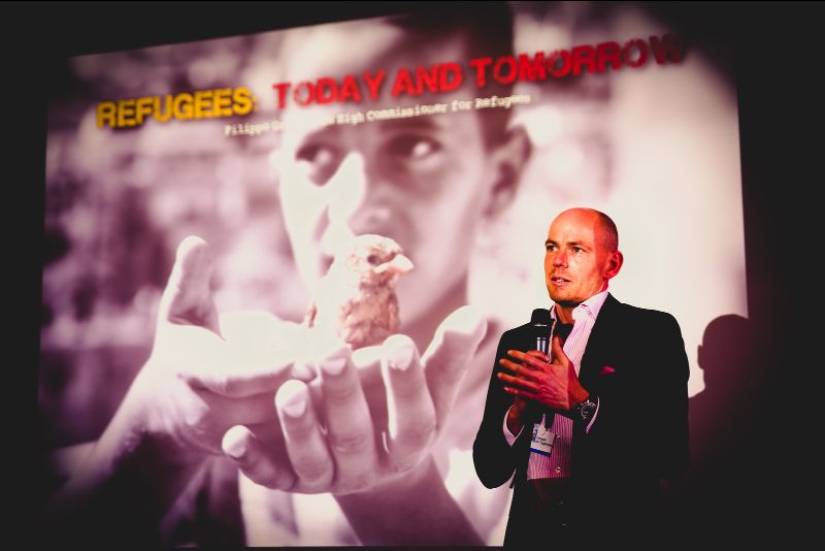Effective leadership in unprecedented times
August 17, 2021
Christoph von Toggenburg (pictured) is CEO of World Vision Switzerland and a Global Leadership Fellow at the World Economic Forum (WEF) where he was Head of Social Engagement and Manager of the Global Future Council on the Humanitarian System.
Last February, Christoph wrote an article for the World Economic Forum, titled: ‘This is what makes a good leader and a better team‘.
We live in highly challenging times. This uncertainty is likely to remain the new norm. In these troubled times, leaders need a different set of skills and qualities to succeed.
Think about people and leaders who shaped your life. Do you remember the first teacher who inspired you? Most likely they were able to see something in you that others were not able to. The same holds true for any good leader. Adam Grant in his book ‘Give and Take’ compares a leader to a friend: “A friend is someone who sees more potential in you than you see in yourself, someone who helps you become the best version of yourself.”
After 15 years in leadership roles in different organizations and countries – in conflicts all over the world with the ICRC and UN, working with key decision-makers at the World Economic Forum and now as CEO of World Vision Switzerland – I have observed many similarities in the way effective teams are led. These hold true whether on battlefields or in boardrooms.
I would like to focus on two key qualities of effective leaders:
● They foster and practice an effective feedback culture
● They empower others
The best leaders serve others. They see their teams as their best asset and understand that investing in teams helps improve motivation and ultimately productivity.
Working in high-pressure environments helping each other is key to success. That is why effective leadership should be embraced by every team member and the way they interact and help each other. Therefore, we should measure each team member’s contribution to the work of others and their helpfulness.
An integral part of this ‘team culture’ is gifting each other with feedback. In times of countless and often unprecedented challenges, an active feedback culture offers swift learning and improvement opportunities. Feedback can either be negative or positive but should always be perceived as constructive and helpful. There are some basic rules: be fast, be open, and make it a two-way street if possible. Feedback also helps to understand how different people perceive tasks, failures, and successes differently. Gratitude is a key element of a feedback culture. Therefore, thank generously (if deserved). Gratefulness does not know hierarchies. A leader without a team is nothing.
“Servant-leaders have the humility, courage, and insight to admit that they can benefit from the expertise of others who have less power than them. Therefore, leading means basically empowering others and helping them grow,” writes Daniel Cable in his book ‘Alive at Work’. Therefore, the leader should not only set challenges but also help teams to grow, while keeping the needs of the organization at the heart of all actions.
Being a humble leader means being the “captain” in both stormy and quiet seas, celebrating every sunset and sunrise. We serve more than our tasks – something we bear in mind at World Vision as we focus on the most vulnerable children, their families and communities in 100 countries around the globe.
Here are some potential actions:
Appreciation
- Thank swiftly and generously.
- Celebrate success and emphasize the efforts of the team rather than individuals.
- Write a Gratitude Journal every day (a few lines will be enough).
Challenge and facilitate growth
- Adopt a coach mindset and help your management team to do the same.
- Include everyone in decisions.
- Listen, listen, and then listen more. Learn all about active listening.
- Exploring, being curious, learning, receiving, and giving feedback should become an integral part of the work culture and not just an “add-on”.

